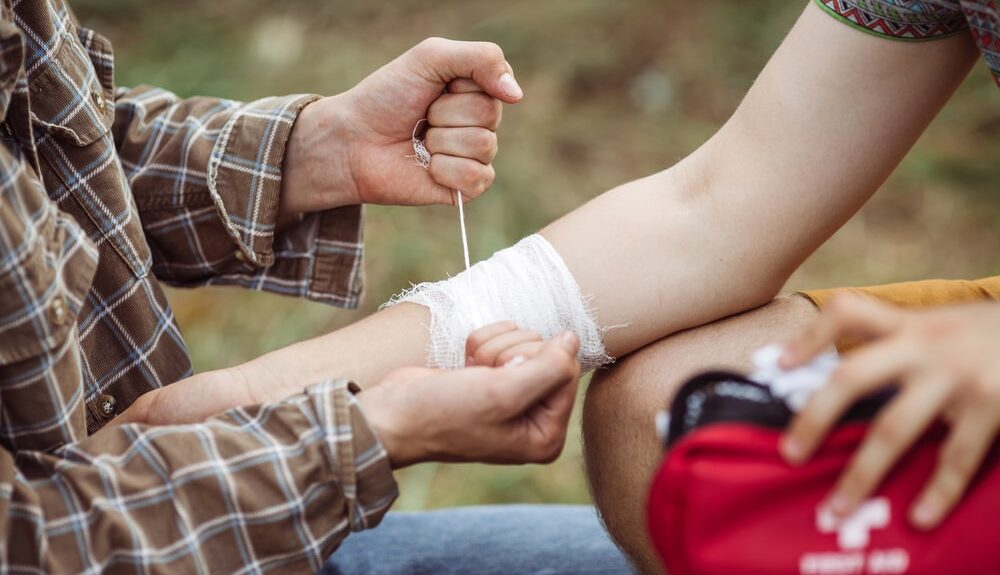As camping season begins in Alberta, outdoor enthusiasts eagerly prepare to embark on exciting adventures and create unforgettable memories. From the breathtaking Rocky Mountains to the tranquil prairies and stunning lakes, Alberta offers a diverse range of camping destinations that cater to every preference. The pristine wilderness, crisp mountain air, and star-studded skies set the stage for nights filled with laughter around campfires, storytelling, and bonding with loved ones.
However, it's important to prioritize safety during your outdoor adventures. From being prepared for medical emergencies to understanding how to coexist with wildlife and prevent wildfires, this article will provide essential camping safety tips. Read on to ensure a secure and enjoyable camping experience.
First Aid Training
First aid training is often associated with individuals in specific professions, such as healthcare providers, firefighters, or lifeguards. However, the benefits of first aid training extend far beyond these specialized roles and can be invaluable for the general public as well. Accidents and medical emergencies can happen anywhere, anytime, and having the knowledge and skills to provide immediate assistance can be life-saving.
First aid training equips individuals with the ability to assess and respond to various emergencies, such as choking, burns, fractures, or cardiac arrests, until professional help arrives. It empowers ordinary people to become immediate responders, capable of providing critical care and potentially preventing further harm or saving lives.
When you’re out in the wilderness, first aid training can give you the confidence and preparation you need to respond to an emergency.
Bear Awareness
Camping in bear country requires special precautions to minimize potential encounters and promote coexistence. Research the area you plan to camp in to understand the specific bear species present. Store food securely in bear-resistant containers, avoid cooking and eating in your tent, and maintain a clean campsite to prevent attracting bears. Additionally, make noise while hiking to alert bears of your presence and carry bear spray as a precautionary measure.
In a bear awareness course, you will learn how to handle potential encounters, response techniques, how to safely use and transport bear spray, first aid treatment, and more. Beyond that, completing bear awareness training will give you peace of mind to camp in Alberta’s many campgrounds safely.
Fire Safety
Campfires are a cherished part of the camping experience but can pose risks if not managed properly. Follow these fire safety guidelines:
- Check for fire bans and obtain necessary permits before starting a fire
- Choose a suitable location for your campfire, away from low-hanging branches, dry grass, and flammable materials
- Clear the area around the fire pit by removing leaves and debris
- Keep a bucket of water and a shovel nearby for quick fire extinguishing
- Never leave the fire unattended, and ensure it is completely extinguished before leaving the campsite or going to sleep
Stay Prepared For All Weather Conditions
Weather conditions can change rapidly, even during a camping trip. Stay informed about the local weather forecast before and during your camping adventure. Bring appropriate clothing, including rain gear and extra layers, to stay warm and dry. Seek shelter immediately in case of severe weather conditions such as thunderstorms, high winds, or heavy rain.
Know the Area
Familiarize yourself with the camping area, including the layout, trails, and potential hazards. Obtain maps and study them before your trip. Understanding the terrain and local regulations will help you navigate safely and avoid getting lost.
Tour the campground and take note of:
- Specific campground rules and regulations
- Wildlife protection measures
- Potential hazards
- Flood prone areas
Exits and entryways
Pack Insect and Tick Protection
Protect yourself from insect bites and ticks, which can transmit diseases. Use insect repellent, wear long-sleeved shirts, long pants, and socks, and conduct regular tick checks on yourself and your camping companions.
We recommend choosing light-coloured clothing as it makes spotting ticks and other insects easier. Minimize the use of scented personal care products, as fragrances can attract insects. Keep food and garbage properly stored to avoid attracting flies, ants, and other pests to your campsite.
Unplug and Enjoy!
By following the various safety tips discussed, you can have peace of mind and fully immerse yourself in the wonders of nature, create lasting memories with friends and family, and unplug from the hustle and bustle of life for a little while.
Embark on your camping trip with confidence, embrace the beauty of the outdoors, and savour the moments while staying safe!

